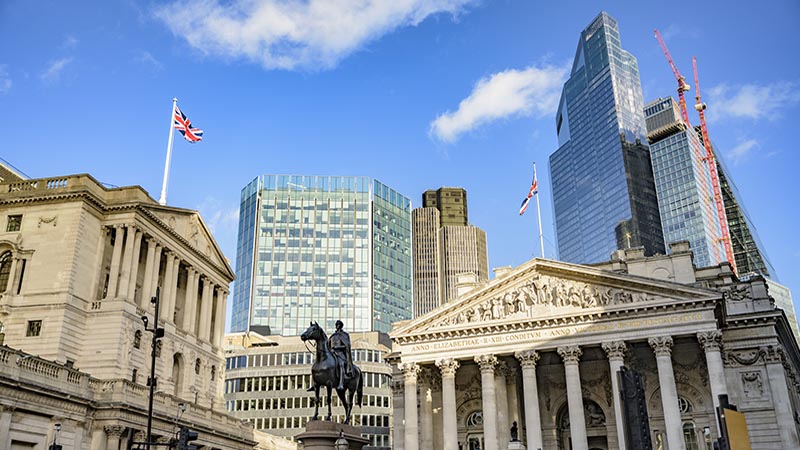Unemployment unexpectedly rose by 0.1% in the first quarter of the year to hit 3.9%, according to the Office for National Statistics.
The latest numbers suggest the Bank of England’s rate rise cycle is beginning to hit the labour market and wider economy in a more meaningful way.
The large time lag between monetary policy decisions and their impact on economic data has meant the jobs figures have been largely unaffected so far, with unemployment remaining at low levels through the hiking cycle.
While today’s figures suggest the economy is slowing the picture is far from clear, with the ONS also reporting wages rising 5.8% on the same time last year.
Commenting on the ONS update, Richard Carter, head of fixed interest research at Quilter Cheviot, said: “Wage growth is one area that has gained a lot of headlines as leading figures have asked for pay restraint, and the Bank will continue to watch it with a keen eye. While wage growth is a lagging indicator, today’s data show wages have continued to climb, but the pace at which they are growing has slowed.”
“The ONS reports growth in regular pay, excluding bonuses, up 6.7% in January to March 2023, just a 0.1% increase compared to 6.6% reported in December to February 2023. The Bank is left facing a tricky task of knowing when enough is enough on interest rates, and this morning’s data may mean we are not quite at the end of the hiking cycle yet. It will be hoping wage growth continues to moderate and doesn’t threaten to rip up the inflation forecasts it is relying on when it comes to interest rate setting.”
Myron Jobson, senior personal finance analyst at Interactive Investor, said: “Unemployment has edged higher as a triple whammy of credit tightening, rising interest rates and rampant inflation weigh on business confidence.
“Higher interest rates ups the cost of borrowing which makes it harder for companies to access capital to help fund hiring and make investments to stimulate business growth. While consumer spending remains somewhat resilient, it still lags behind inflation, which may rob businesses of even more growth to keep expanding.”
“The job market has remained remarkably robust and resilient amid ongoing economic uncertainty, but the latest labour market figures suggest that the post pandemic hiring sugar rush is abating, with job vacancies falling on the quarter for the 10th consecutive period in February to April 2023,” he added. “Job openings have fallen in 14 out of 18 industry sectors, suggesting that many employers are reining in their recruitment over concerns of the UK’s economic picture.”







